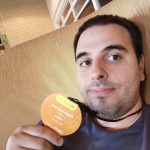Photo is illustrative, Shutterstock
The role of media and journalism in society
There is a saying that journalists are the watchdogs of society. Media is considered the fourth pillar of democracy, balancing the judiciary, executive and legislative powers with transparency (Deane, 2005). Journalism is what holds those in power accountable by researching, asking uncomfortable questions and reporting on topics that otherwise might never be discussed.
Heard of Richard Nixon? He was impeached as president after journalists at The Washington Post reported on the connection the President had with a break-in in what is now known as the Watergate scandal (Perry, 1998). The Boston Globe won a Pulitzer Prize for their coverage of sexual abuse by Roman Catholic priests, because they started a global conversation about such coverups, enabled thousands of victims to come forward and forced the church to make systematic changes, calling their work “a public service” (Feeney, 2003).
Media also exists in authoritarian regimes; however, it is not used for accountability or transparency but rather combined with censorship of foreign media, as in China for example (Chen and Yang, 2019). Authoritarian regime leaders can use media for self-promotion, such as Vladimir Putin hugging bears and allegedly saving people from tiger attacks (Rollins, 2013), or they can use state media to show changes in strategy to come, such as Kim Jong-Un going horseback riding for a photo op (Panda, 2019). Media can also be of service for people under an authoritarian regime, as it did by playing a major role in ending the apartheid regime in South Africa (Kalane, 2018). When the Berlin Wall fell, the audiences behind the Iron Curtain relied on journalists for information on the significance of the event for countries annexed by the Soviet Union (Large, 2019).
So it’s impact and function in society must stretch further.
Journalism and gatekeeping
During World War II, an experimental psychologist by the name of Kurt Lewin researched how to entice Iowa housewives to eat secondary cuts of beef such as thymus, heart, liver and kidney as a part of their patriotic duty, so the military could get primary cuts (Roberts, 2005). He realised housewives act as key gatekeepers, who control what food ends up from the garden or supermarket on the dinner table (Roberts, 2005). He died of a heart attack before publishing, never knowing he had established the theory of gatekeeping.
Indeed, journalists are the gatekeepers of the world, as they act as a filtering system and get to decide which stories will be pursued and published – in the early 20th century, the decision was made by the newspaper’s wire editor and the media seemed all-powerful as there were little to no alternative for informing and/or persuading the masses (Lippmann, 1922; McQuail, 1994, Roberts 2005). Nowadays, the gatekeeping is done by online editors filtering through the mail inbox or anonymous tips of the publication, and there are many alternative channels to obtain information from (Roberts, 2005; Kase, 2011). However, the power of being the gatekeeper remains – media is the main agenda setter in society (McCombs, 1994). Most of what people know is mediated information from either other people or mass media – that means if the media dictates the agenda, it also sets the tone and attributes people connected with the object of the news and what they deem worthy of their attention in the first place (McCombs and Shaw, 1972; Vu, Guo, McCombs, 2014).
The impact of social media
Social media has changed the way we consume news and the way we think about professional news media: according to Reuters’ Digital News Report for 2019, four in ten people on average access news on social media first (this number is higher in younger age groups) and only half of the respondents said they trust the news media they themselves consume (Newman, Fletcher, Kalogeropoulos, Nielsen, 2019). In countries with lower media literacy skills or press freedom levels, such as Brazil, India, Malaysia, South Africa and Hong Kong, news is increasingly being consumed and shared in private messaging apps, such as Whatsapp, Messenger and Viber (Newman, Fletcher, Kalogeropoulos, Nielsen, 2019), where the information is not verified but is shared between family members, friends or even with complete strangers. On the one hand, political talk on messaging apps can increase political participation (Vaccari and Valeriani 2018); on the other hand, however, Whatsapp has been linked with the spread of political propaganda, hate speech and misinformation (Kaur, 2017; Boadle, 2018). So where does that leave professional journalism?
Journalists are called the watchdogs of society because the relationship between the media and their audience is based on trust and only works as long as journalists have the public interest at heart (Lasswell, 1927; Lippmann, 1922). Trust is also why when it comes to the spread of misinformation and disinformation, mass media plays a critical role, as the auditorium has a normative expectation that information published by professional journalists has been processed and verified (Himma-Kadakas, 2017; Silverman, 2015); therefore, it is deemed trustworthy more easily than someone’s status update on Twitter, for example.
Social media can help to disseminate live events faster (Leetaru, 2019) and help journalists get witness accounts when official information is not being released fast enough (Himma-Kadakas, 2017). However, it can also be a tool for misinformation campaigns or political influencing, which has stressed the need for fact-based, objective and ethical reporting. The internet revolution compliments traditional media’s power to influence opinions, beliefs and attitudes that translate into action (Bratic, 2006) with first-hand accounts and voices that cannot be silenced, no matter what the political regime. All so the watchdog of society can keep performing its function.
Media Impact (Shirley Biagi)
books.google.eeMedia and Society (James Curran, David Hesmondhalgh)
books.google.ee






